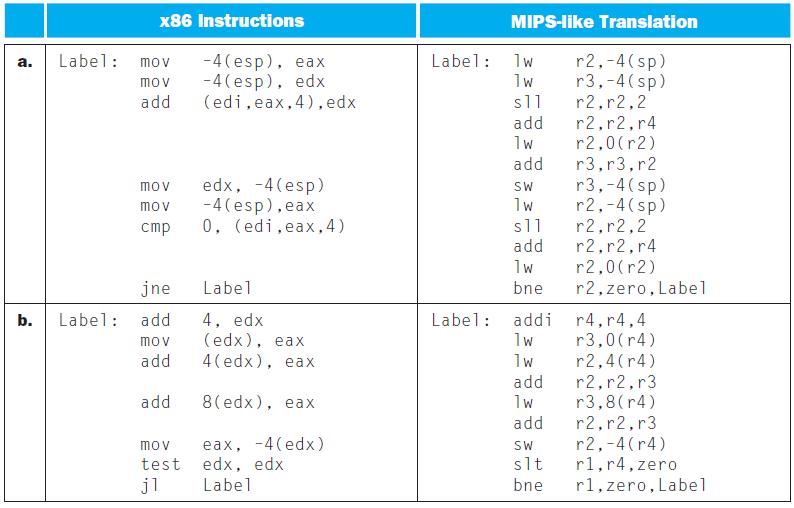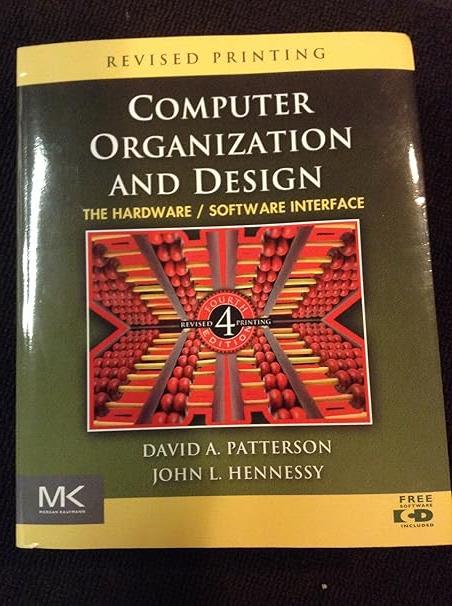What CPI would be achieved if the X86 version of this loop is executed on a 1-issue
Question:
What CPI would be achieved if the X86 version of this loop is executed on a 1-issue processor with static scheduling and a 7-stage pipeline? The stages of the pipeline are IF, ID, ARD, MRD, EXE, and WB. Stages IF and ID are similar to those in the 5-stage MIPS pipeline. ARD computes the address of the memory location to be read, MRD performs the memory read, EXE executes the operation, and WB writes the result to register or memory. The data memory has a read port (for instructions in the MRD stage) and a separate write port (for instructions in the WB stage).
Problems in this exercise refer to the following loop, which is given as x86 code and also as an MIPS translation of that code. You can assume that this loop executes many iterations before it exits. When determining performance, this means that you only need to determine what the performance would be in the "steady state," not for the first few and the last few iterations of the loop. Also, you can assume full forwarding support and perfect branch prediction without delay slots, so the only hazards you have to worry about are resource hazards and data hazards. Note that most x86 instructions in this problem have two operands each. The last (usually second) operand of the instruction indicates both the first source data value and the destination. If the operation needs a second source data value, it is indicated by the other operand of the instruction. For example, "sub (edx),eax" reads the memory location pointed by register edx, subtracts that value from register eax, and puts the result back in register eax.
Step by Step Answer:

Computer Organization And Design The Hardware Software Interface
ISBN: 9780123747501
4th Revised Edition
Authors: David A. Patterson, John L. Hennessy





